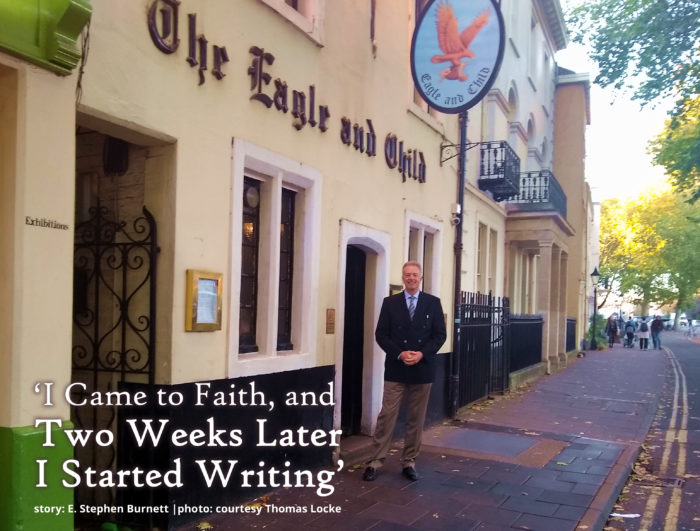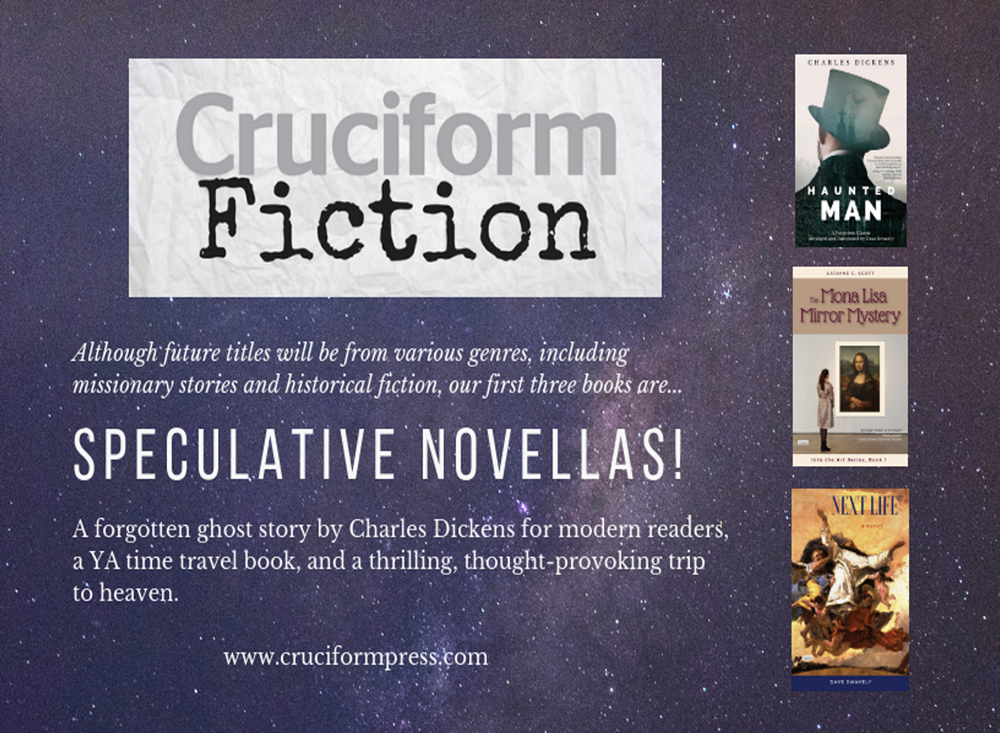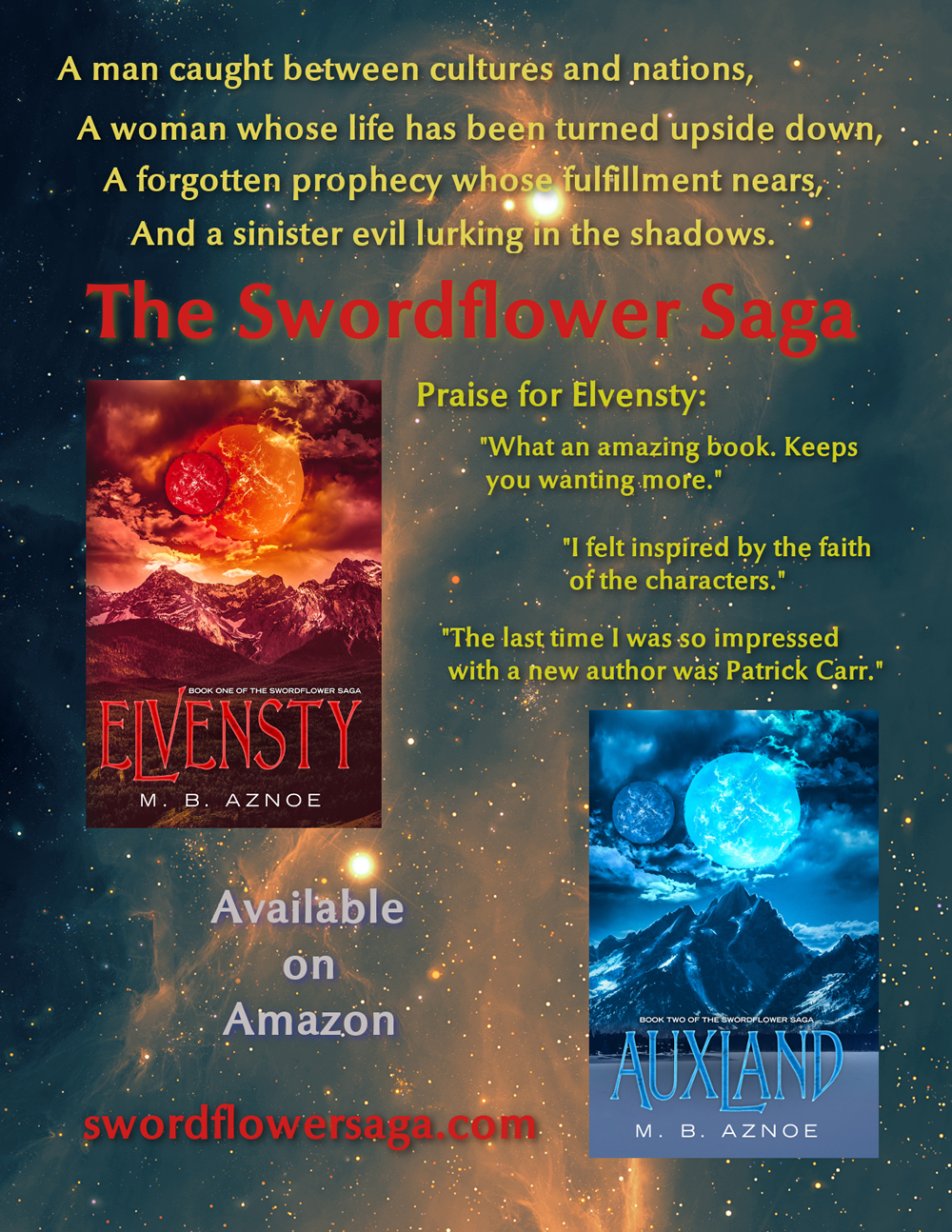‘I Came to Faith, and Two Weeks Later I Started Writing’
Thomas Locke grew up in the American South—the setting of his newest novel, Enclave. His ancestors were attorneys and politicians. His parents met because they helped found one of the most influential churches in North Carolina.
“And the rigid, conservative Bible-belt perspective of Christianity is something that I was never comfortable with,” Locke said in an interview.
Decades later, Locke has spent most of his life committed to Christ. Now he lives and creates stories in the U.S. and in Oxford, England (a location that offers some historical significance for Christian fantasy fans).
Clearly, something in his worldview has changed.
With a grin, Locke said he traces the transformation to one year in the late 1970s.
He had left Raleigh, North Carolina, studied economics at Wake Forest University, then moved to England to learn graduate-level international finance. Locke worked in this field in Africa, then in Germany, where he ran a global consulting group.
“We started having enormous success, and I was absolutely miserable,” he said.
Locke faced two choices: he could admit he wasn’t happy, or pretend, as he said some successful persons tend to do, that everything was fine anyway.

For him, Christianity wasn’t on the table. He’d left that in his past. Among his reasons, he said, was the fact that even well-meaning Christians may falsely call certain behaviors or ideas “biblical.” But their standards, Locke said, are based not as much on actual Scripture but on ideas we’ve inherited from our culture.
Then Locke befriended a monk from the Netherlands, and a Christian husband and wife who were both opera stars. They invited him to join a quarterly Bible study gathering of Christians who worked all across Europe’s music and dance world.
This time, Locke saw a gospel greater than the childhood beliefs he had rejected.
“It was really a transformative moment, that sense of being connected with extremely intelligent and ambitious and artistic people who were very intent on their faith.”
— Thomas Locke
“It was really a transformative moment, that sense of being connected with extremely intelligent and ambitious and artistic people who were very intent on their faith,” he said. “For me, entering into a Bible-based church and having this opportunity to grow in faith, surrounded by other people, was a really important part of my walk and remaining stable as an individual.”
Locke said he realized two big truths related to Christianity and creativity.
First, faith in Jesus ought to motivate creative excellence, not only in opera and music, but in stories in all different genres, including fantasy and science fiction.
Second, belief in the gospel doesn’t mean every other religious system is only full of lies. Honest Christians can praise the reflections of morality and truth in other faiths, while still holding to salvation solely through Jesus, Locke said.
Today’s Christians must know both truths to engage with today’s world, he said.
“We are entering into a time where the readers of your magazine, for example, are going to be facing some very difficult issues that are not being confronted by today’s church,” Locke said. “But they are living with these things in their daily walk.”
Thanks to creative Christians’ influence, Locke came to faith in Jesus.
“Two weeks later I started writing,” he said. “I wrote for nine years and finished seven books before my first was signed for publication.”
Locke’s first idea was for a science fiction story—an impulse he attributes to God.
“There was that clear sense of the divine presence, that this is what I was intended to do,” he said. “It didn’t mean that it was going to be easy.”
— Thomas Locke
“There was that clear sense of the divine presence, that this is what I was intended to do,” he said. “It didn’t mean that it was going to be easy.”
Running his consulting firm required six– to seven-day work weeks and travel to four countries each week. Still, Locke managed to clear time to write at least twenty hours a week, and later won an award for that first story.
Locke later pursued more ideas in other genres, such as contemporary drama and political drama. But he always wanted to return to fantasy and science fiction.
Both genres, however, have been previously shunned by skeptical Christians. In Christian bookstores, most shoppers weren’t browsing shelves for a lot of novel covers with dragons, spaceships, or paranormal critters.
Locke said that’s likely because the stories might pose too many tough questions—certainly about fictional magic in fantasy, and alien creatures in science fiction.
Now Locke sees the scene changing. Like most bookstores, Christian stores are struggling and many have closed, thanks to competition from Amazon and Walmart books. But Christians themselves, he said, are getting stronger in their faith. They’re also not looking for community, or great stories, exclusively in their local churches.
Locke said his Christian publisher isn’t emphasizing retail in church bookstores. “Today their aim is to offer, to the believing audience . . . books that hold to a Christian moral structure, over books that hold an overt Christian message.”
His latest novel, Enclave (November 2018, Revell) finds the United States fallen after economic collapse. Large cities, called enclaves, are ruled by despotic mayors, marking the nation’s return to Wild West–era frontier law and lawlessness.
In this decaying society, two upstanding men from different backgrounds, along with several of their supernaturally gifted friends, form a plan to push back.
That’s the kind of moral optimism Locke said more dystopian stories should have.
“There’s no trademark hope for most of these [dystopian] books. . . . Where are they going? What are they hoping for?”
— Thomas Locke
“There’s no trademark hope for most of these books,” he said. “And in all but a very few of the dystopian series, there is no challenge big enough to justify more than one book. . . . The plot becomes circular. It’s a sense of repetitive crisis without an answer. Where are they going? What are they hoping for?
“These stories have thrown the baby out with the bathwater,” Locke concluded. “I’m not disagreeing with them. Their worldview is their worldview. But this does not excuse them from accepting the challenge of making whatever they can better.”
As for biblical faith, it’s latent in Enclave by design. Characters’ background beliefs are referenced, while the heroes’ goal is earnestly and truly moral.
Locke said he will continue to pursue this goal of moral storytelling, whether in sci-fi like Enclave, or in his other stories that have attracted the attention of TV producers. This February, Locke visits Los Angeles to discuss two adaptations moving forward.
“My primary focus is to create entertainment that is competitive with what is out there in the mainstream, in terms of the character structure, the writing style, and the dramatic action,” Locke said. “At the same time, I want to maintain a sense of moral connection to the Scriptures and to that sense of a higher calling.”
































[…] And I wouldn’t be surprised if, this year, we hear a similar announcement from novelist Thomas Locke, last seen in the winter 2018 cover story of Lorehaven: […]
[…] The keynote speaker is back from the 2016 conference: none other than Thomas Locke (aka T. Davis Bunn). […]